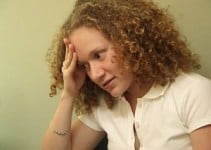Do you find yourself asking: when am I most fertile or which days am I most fertile and you are feeling confused from the amount of advice and information that you are getting? If you are, then you should know that you are not alone. Most women will ask this common question when they are struggling to conceive. It is also one of the most common questions that many fertility experts will answer daily.
Finding The Perfect Timing

Perfect timing is essential for getting pregnant. There is a widespread misconception about pregnancy that females can get pregnant anytime. No women can get pregnant under favorable conditions. The most important thing about is there is a specific time every month during ovulation that increases the chances of pregnancy.
There is only a specific time in each menstrual cycle when it’s possible to get pregnant. This ‘fertile window’ is once a month. This time is perfect for having sex improving chances of conceiving a baby.
Fertility is the time when a woman’s body is ready for pregnancy. So, the best way to get the answer for your question is to understand your menstrual cycle. Typically, the menstrual cycle of a woman will last for twenty-eight days which is calculated from day one of a menstrual period to day one of the next one.
This menstrual cycle can be affected by hormones such as estrogen, follicle stimulating hormone, gonadotrophin-releasing hormone, progesterone and luteinizing hormone.
Increasing Chances of Pregnancy
There are several ways to improve the chances of pregnancy. Some of them are as follows
- The possibility of pregnancy is having sex at ovulation. Try to have sex close to ovulation period and as much possible for increasing your chances to become a mom.
- Knowing your ovulation will make it easier for you to plan your sex according to ovulation to increases chances of pregnancy. The best way to do is by tracking your periods on a calendar.
- Considering the ovulation period’s significance in mind is essential. If a woman had sex six or more days before her ovulation, then there are zero chances of getting pregnant. That is how it can make a difference.
- If a woman with the same case study had sex five days before her ovulation, then she might have at least 10% of chances for getting pregnant.
- Similarly, if she had sex on the day of ovulation or two days earlier to ovulation, then there are more than 30% of chances for her pregnancy.
Role of Fertility Age in Pregnancy
Scientifically there are five stages of fertility in pregnancy that evaluate the chances of pregnancy according to various clinical and physical observations. These five ages of fertility are as follows:
Stage # 1
Stage one starts at the age of 14. At this age, most girls are fertile and begun to ovulate.
Stage # 2
Stage two starts at the age of 21. At this age, the females are grown up and mature. Girls at this age have a high rate of pregnancy as their fertility is at the peak.
Stage # 3
Stage three is the critical stage, and it begins at the age of 30. Till this age females have reached their peak of fertility and maturity. The fertility rate starts to decline at this stage.
Stage # 4
Stage four begins at the age of 37. At this age, the fertility rate drops rapidly.
Stage # 5
Stage five is the final stage of fertility, and it starts at the age of 44. At this stage, the fertility rate is extremely low therefore chances of becoming a mother is very low but not impossible. If a female has kept herself fit enough and free from illnesses, then she might have a chance of pregnancy.
These are average figures and depend on a woman’s age.
During the middle of a cycle, around day 14, the egg can get caught inside the fallopian tubes when it’s discharged during ovulation. However, due to certain factors that could affect the hormones in the menstrual cycle, your ovulation could vary each month. To know when am I most fertile is to understand the changes and know exactly how to determine your ovulation.
Ovulation and Fertilization
Ovulation will occur fourteen days before the start of your menstrual period. If your cycle last for twenty-eight days, you can ovulate on the fourteenth day like the average female.
However, you will start ovulating around the eleventh day if you have periods twenty-five days apart. Alternatively, you will not ovulate until the twentieth day if your periods last longer like for 34 days.
The most fertile days in the cycle will be during ovulation and some days after ovulation. This will be the best time for you to try and conceive.
If fertilization fails the egg inside the fallopian tubes will disintegrate and your uterus will begin to produce prostaglandins to change the flow of blood. This will cause your menstrual period to start and the cycle will begin once again.
Role of Tracking Menstrual Cycle in Pregnancy
It is important to study your menstrual periods if you want to improve your chances of conceiving or getting pregnant. Determine the exact time when you ovulate and ensure that you are getting busy at the right time each month. Of course, it will not always be easy for some women to conceive, especially with irregular periods.
If you have menstrual cycles which are way off the normal scale, this would indicate that you have an underlying fertility problem such as not ovulating regularly.
In summary, you need to understand your menstruation cycle to get the right answer to this question. Besides helping you to know when you are most fertile, the information can be used as a guide for you to get pregnant.
Image: Bigstock
References:
-
1. Sharma, R., Biedenharn, K. R., Fedor, J. M., & Agarwal, A. (2013). Lifestyle factors and reproductive health: taking control of your fertility Reproductive Biology and Endocrinology, 11(1), 66.
2. Practice Committee of the American Society for Reproductive Medicine. (2012). Evaluation and treatment of recurrent pregnancy loss: a committee opinion. Fertility and Sterility, 98(5), 1103-1111.
3. Bartels, S. A., D’Hoore, A., Cuesta, M. A., Bensdorp, A. J., Lucas, C., & Bemelman, W. A. (2012). Significantly increased pregnancy rates after laparoscopic restorative proctocolectomy: a cross-sectional study. Annals of surgery, 256(6), 1045-1048.
4. Donnez, J., & Dolmans, M. M. (2013). Fertility preservation in women. Nature Reviews Endocrinology, 9(12), 735.
5. Letourneau, J. M., Ebbel, E. E., Katz, P. P., Katz, A., Ai, W. Z., Chien, A. J., … & Rosen, M. P. (2012). Pretreatment fertility counseling and fertility preservation improve quality of life in reproductive age women with cancer. Cancer, 118(6), 1710-1717.
6. Hammarberg, K., Setter, T., Norman, R. J., Holden, C. A., Michelmore, J., & Johnson, L. (2013). Knowledge about factors that influence fertility among Australians of reproductive age: a population-based survey. Fertility and Sterility, 99(2), 502-507.




I had my period on 3 April lasted to 8 April. I had unprotected sex on 11 and 12th April. Then again had sex on 19, 20 and 21 April. Can my chances of getting pregnant be high on the days I had unprotected sex. Please help me.
Hi Dorothy, Based on a 28 day cycle you are looking at your most fertile days from the 13th to the 18th. So while you had sex on the days that are not within that specific window, yours could always be a bit earlier or later. The only way to know is to wait until your next period at this point and if you are late, take a pregnancy test.
Im 42 yrs old, i had may period on May 17 and it last on May 20, me and my hasband had sex on May 31 and june 1. is it possible for me to get pregnant? Pls reply because im a little bit worried. Thank you so much.
Hi there, your fertile period (based on a 28 day cycle) would have been from May 27th to 31st, which means that you could have gotten pregnant. The only thing you can do at this point is wait until your next anticipated period roughly around the 14th of June. If you don’t get it by the 18th I would probably take a pregnancy test. Good Luck!
Pls I need an answer.i have a normal 28days cycle but I miscalculated as to when my next period would start so I had unprotected sex the supposed first day of my period.am I likely to get pregnant? Meanwhile I took one ampiclox few hours later.
Hi there Odun, there is a low chance of you having conceived around the time mentioned.
Ok I had a period in December lasted for 4 days and then another period in January for 5 days. As of date no period has started. I was calculated to start period 1/31. Am I/could I be pregnant?
Hello Asheswill, yes you could be pregnant as you are late. Take a pregnancy test 7 days after your missed period.
Hi my period came on january 12 wen’t off january16 when will my fertile day start
Hi there Miss Porter, use the below link yo determine when you are ovulating:
https://womanjunction.com
Hi I received my period on 16th October until 19th then I had sex on 29th October so am I safe?
Hello Irene, no you might have conceived.
Hello I usually my period last for just 3 days. I saw my period on September 2 and ended the third day. and by September 28 my period came again till 30. Please is it normal? Today is October 19 and haven’t seen my period. I hard sex on 10,12,15 and 17. Is it that I am pregnant. and what day of this days made me pregnant.
Hi Moralex, if you had your period at the very beginning of the month, it’s quite possible to have another period at the end of the month. It’s not about the month itself it’s about the days in between. If you got your period on the 28th, then you should be expecting your period roughly around the 26th of this month, so relatively soon. If you don’t get it by the beginning of November then I would take a pregnancy test.
Hi! i saw my period 1st july to 5th, and i had unprocted sex on 15th will i get pregnant?
HI Debbie, that would be at the end of your fertile period so it’s quite possible. Have you gotten your period yet? And if not have you taken a pregnancy test?
Hi I need help like I don’t get this at all!! I started my period on the 3rd it only lasted 3 days usually lasts longer Doctor said could be stress or anything don’t worry about it so my period ended on the 6th. I just started my second period on the 28th Memorial Day, now when do I ovulate I think I’m counting wrong do I count from the day I started my 1st period to the day I started my second period? So if I could like that that’s 26 days. Okay so two weeks ahead of that may 14th did I ovulate that day and when is my next time to ovulate am I counting right I don’t know if my cycle is 26 days please help me so I can figure this out so I know when I am most likely to get pregnant. I’ve done all kinds of ovulation calendars or calculators and it still don’t help me because I’m trying to figure out how to count this do I count from 1st day of period then count to 1 day of second period? Then 2 weeks before that I ovulate then how many days am I most likely to get pregnant
Hello Dezeray, the below links will help you:
https://womanjunction.com/
https://womanjunction.com/category/ovulation-signs/
I saw my period on the 7th of march 2018 and it ended on the 11 of march when is my ovulation period?
HI Ella, your fertile period would be the 17th through the 21st of March based on a 28 day cycle. You can always check your fertile days by using the calculator at Menstual Cycle Calculator.
I saw my period on the 6 of march 2018 and ends 9,when is my most fertile days?
Hello Josephine, please use the below link to determine this:
https://womanjunction.com/
I want to ask a question, my period came out on January 27th and did not come throughout February, then came out today been March 5th, when is my ovulation and my most fertile days? Please
Hello Obijuru, use the below link to determine when you are most fertile:
https://womanjunction.com/tips-for-choosing-the-best-prenatal-vitamin/
I stop breastfeeding my baby on December 6 2017 and i noticed my ovulation on January 18 2018 and I started seeing my menstrual on February 5 2018 my ovulation time will be when please reply sir
Hello Oluchukwu, please see the link below for calculating your ovulation date: https://womanjunction.com/
MY PERIOD STARTED JANUARY 15 WHEN WILL MY OVULATION START.
Hi there Onyinyechi, the below link will inform you on this: https://womanjunction.com/
Hello..
I just want to ask something because my period started last January 6 2017 and I think my last day is Jan 10. I had sex at January 23th and 31th And I got pregnat last Febuary. when did i get fertile?
Hello Chie, use the below to help you calculate your fertile days: https://womanjunction.com/
Hi my period came 17 November I had sex the 29th and the 5th. I am pregnant, when did I most likely conceive.
Based on an average 28 day cycle, estimated fertility window could have been November 27th-December 5th. So essentially you could have conceived any time during that timeframe.
Hi there !
Can I ask some opinion about my case ? Thanks in advance.
Well, my last period was October 25, 2017 and last November 21, 2017 we didn’t use any control methods (in short, my partner came inside me that day ‘coz we thought it’s a safe day or week) but, until now I haven’t yet a period..sometimes, I had an irregular menstruation but mostly are regular cycle.
So, in this scenario.. it’s a possible that I am pregnant or just delayed only ??
By the way, until now we dont try to have a PT yet..but last month, I had a 28 cycle but sometimes delayed as well..
I am looking forward to your response and some help as well.
Thank you and God Bless !!!
Hello MJ, take a pregnancy test 7 days after a missed period to determine if you might be pregnant or not.